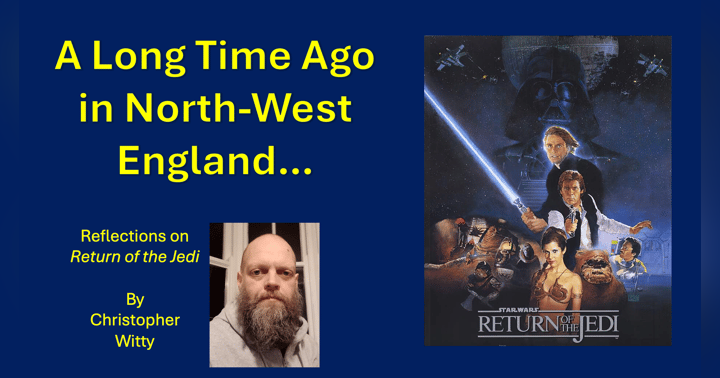Planes, Trains, and Automobiles: Clear As a Bell

Directed by John Hughes at the height of his powers and starring Steve Martin and John Candy in their 1980s prime, Planes, Trains, and Automobiles is the ultimate comedic roast of the true horrors of holiday travel. I personally have experienced many misadventures in my travels, which included arguments with car rental associates, airline associates, hotel associates, motel associates, etc. (As you can tell I argue a lot, much like our co-protagonist Neal Page, but thank God no one ever picked me up by the testicles.) I also worked in telephone customer service and food service, so I’ve been on the receiving end of those angry complaints too. I also have experienced being trapped with strangers who became friends over the course of our ordeals (much like the friendship that blossoms between Neal and Del). Though I share similarities with so many characters in the film, I would have to say that unquestionably I most identify with John Candy’s Del Griffith, with his being the most touching Thanksgiving story I have ever seen.
Alone and on the road for years after the death of his beloved wife, Del finds an unlikely brother in the character of Neal Page, who ultimately adopts him into his own family. Like all brothers, Neal and Del verbally and physically fight their way through a sizable portion of the Midwest on their journey back to Neal’s family. There are moments of tender honesty mixed with moments of betrayal as they are forced to spend every waking second together - in some cases even sharing the same beer-soaked vibrating bed, wet because Del did not realize that a six pack would explode if it was left on such a shaking contraption. (By the way I would totally do something like that, and I also have the same horrendous sinus issues as Del).
Having worked in sales for many years, I am one of those big bearlike people who genuinely loves nothing more than sharing belly laughs over a few beers with folks as we get to know each other. You could chalk that behavior up to being social, or you could go a step further and accurately say that I share Del’s constant need for acceptance and love from others. How did I make that leap you ask? Well, you see, in addition to being a salesman in the traditional sense of goods and services, I am also a friendship salesman. Yes, you read that right. There are many of us out there. We are the people that want to be sure that you are smiling and enjoying our time together, no matter how brief it may be. Being a friendship salesman is a high-stakes job where failure is truly not an option. Whenever I do meet someone who does not like me, I go far out of my way to prove that I am indeed likable and a very worthy candidate for a close friend. Luckily, I have a high friendship close rate, but when a person does not want to be friends my mind works overtime to close the friendship deal. As a salesman, you are trained that every no brings you closer to a yes, and honestly I would be embarrassed to confess just how many hours of my life I have spent in vain trying to get people to like me. Del and I share this trait, as evidenced by the amount of time that Del invests in trying to get Neal to like him.
Even when you remove the saIesman element from the conversation, I have always been a talker – a big talker as a matter of fact. I have been unceremoniously told on more than one occasion by people to just plain shut up, and this includes people who you could never imagine saying such a thing. My father, who tended to be quite different from me in his methods of self expression, would often laugh at my extreme verbosity and say, “You are such a bullshitter, John.” By definition, in my house, bullshitting just meant talking a lot and not lying, though the word bullshit was also sometimes used to mean deception in the traditional sense. It’s nothing short of a miracle that somehow we always knew the difference in the meaning of the word without there being any change in inflection.
When I was growing up my father would make emotional statements in a very detached, matter-of-fact manner, so as to not draw too much attention to them. As a result, whenever my father spoke I always made sure to listen to exactly what he was saying so that I could understand what he was trying to convey. In my own life, I have on occasion delivered heavy feelings in a measured manner, but generally speaking, when I try to convey difficult emotions, despite my best efforts, I come across at best like a panicked chicken running around with its head cut off. On a positive note, my penchant for melodrama is very helpful in my chosen profession as actor. Nevertheless, being familiar with the Midwest tradition of male stoicism made me more aware of Del Griffith’s seemingly innocuous statements about his wife and home.
Del and I both share a deep love for our wives with the significant difference being that I am fortunate enough to still have my wife with me (and be able to do a fun movie podcast with her to boot!). There is nothing more terrifying to me than the idea of living out my days in solitude, and because of this, I understand how Del’s loss of his wife would drive him to remain on the road full time. Being out and interacting with other people through his sales career continues to bring Del happiness and a sense of normalcy in his life. I’m guessing Del’s wife was never with him during sales trips, so Del’s need to constantly be working out on the road allows him to temporarily ignore his grief, while even possibly giving him an opportunity to fantasize that his wife will be at home waiting for him when he finally returns. Del’s line, “I haven’t been home in years,” initially feels like an inconsequential exaggerated gripe that is common to any working person - for instance a person who has been working extended hours at their place of business may say, “I am living at the office.” The full impact of Del’s line does not hit the audience until we experience it through the eyes of Neal on his ride home on the L. As Neal daydreams about his own family preparing Thanksgiving dinner, he also recounts his wild escapades with Del on the journey home. During this period of reflection, Neal discovers that his selfishness about getting home to his own family blinded him to Del’s plight and his subtle cries for help. Overcome with uncharacteristic emotion, Neal rushes back to find Del sitting alone in the empty train station and invites Del to the Page home for Thanksgiving with an unspoken understanding that Del is welcome to stay with his family until he is able to get back on his feet again. The final shot of the film is a single of Del Griffith in the Page home, where Del simultaneously exudes both his joy of coming home to a new loving family and his overwhelming grief that his wife is not there to greet him.
Not every story can have a happy ending, but when they naturally occur it is a cause for celebration. Planes, Trains, and Automobiles is a holiday film that puts forth the idea that family is not limited to spouses and blood relations, but rather family is a term that refers to people who are there for you and love you, flaws and all. In my life I feel that I am never thankful enough for the family that I have. Like the rental car radio still working in the otherwise melted dashboard panel, the more subtle emotional message of this movie makes itself heard through the brash comedic overtones as clear as a bell. Planes, Trains, and Automobiles is a beautiful and bittersweet tribute to those who are alone and lacking human connection, especially during a holiday literally based on being grateful for all that you have, especially family.
Comfort Films Episode 8: Planes, Trains, and Automobiles (Released November 25, 2021)







